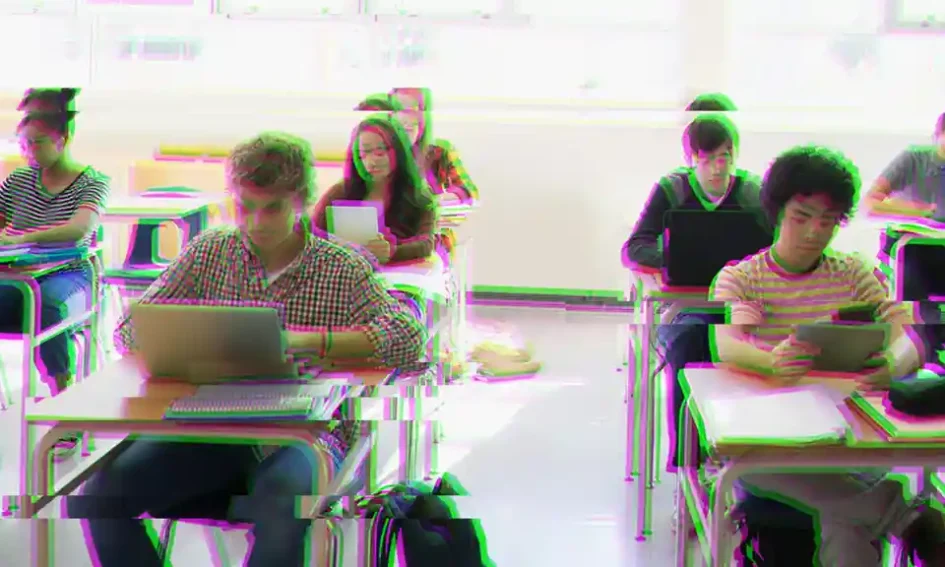TOTT NEWS
An investigation has revealed over 4 million Australian children were exposed to surveillance and tracking from third-party apps during lockdown remote learning periods. The school students were put at risk of unprecedented tracking and surveillance during remote learning periods, as corporations exploited their access to children.
The findings come from a comprehensive study into the murky world of student data during COVID-19 lockdowns, and the privacy risks for both students and their families as education shifted to homes.
International advocacy group, Human Rights Watch (HRW), analysed 164 educational apps and websites used in 49 countries, running tests to track where the data of hundreds of millions of children ended up.
The HRW findings show that 89 per cent of the educational technology, or “EdTech” products, used on an international scale could put children’s privacy at risk.
“Governments of 49 of the world’s most populous countries harmed children’s rights by endorsing online learning products during Covid-19 school closures without adequately protecting children’s privacy, Human Rights Watch said in a report released today.”
Despite international privacy obligations, the products requested access to students’ contacts and locations and monitored their keystrokes. The data was sent to nearly 200 ad-technology companies.
Parents and schools had little choice but to adopt these products to ensure their children kept up with classmates. Opting out could mean repeating a year.

In Australia, it is alleged a number of companies did not meet the promises made in their privacy statements.
A 7:30 investigation calculated that because of this risk, over 4 million Australian school students could have been caught up in this international data mining scheme.

A number of the apps and websites in question come from large corporate faces.
APP CONCERNS
The HRW investigation began a year after remote learning began in March 2021 — well beyond the first chaotic months of the pandemic.
Many Australian schools were still using the Adobe Connect app for videoconferencing and screen sharing, despite the application having access to students’ cameras and microphones, and HRW identified code allowing it to collect phone numbers.
Chris Cooper, the Executive Director of Reset Australia, said tech companies like Adobe had “opaque” business models and were not subject to the same regulations as other companies operating in Australia.
“Teachers, students and parents are left really in the dark with what’s happening with the data the company is collecting on young people,” he told the ABC.
Reset Australia is part of an international, apolitical advocacy group, pushing policy solutions to data privacy issues, as well as countering digital threats to democracy.
“The big tech companies like us to believe that any kind of regulation is going to break their products and break the internet, but there is a range of sensible, reasonable, appropriate regulations that we can introduce,” Mr Cooper said.
Adobe made clear in its privacy policy that it uses users’ personal data to target them with behavioural advertising and that data is shared with third parties.
Furthermore, software development toolkits (SDK) were also detected on a number of popular apps, which allowed Google to access the same data in real time.
Microsoft has also spent $3.5 billion purchasing the popular Minecraft adventure game, it leveraged its investment by creating a new education spin-off, Minecraft: Education Edition.
HRW has accused the company of breaching its privacy policy, which reassured parents with promises that it would not collect or use children’s personal data for non-educational purposes.
Education Perfect: Science, another online learning platform, is also used across the world. It is accused, though, of violating its own privacy policies.
These are just a few examples found in the new report.
With Australia’s Privacy Act currently under review, Mr. Cooper says governments should ignore lobbying from the EdTech industry and apply to them the proposed new laws designed to protect children’s data.
Because it isn’t just happening in remote settings.Advertisements
IN THE CLASSROOM
Technology in the classroom and schooling system in Australia has increased dramatically over the last decade, with ‘educational applications’ from a multitude of devices now used to deliver curriculum, and biometric technology used to record daily processes.
Students are now being given tablets, schools are teaching coding and standardised tests are delivered online or on a device – no longer on a piece of paper with a pencil or pen.
We first reported on a story in 2017 that parents have been told concerns about privacy are ‘unwarranted’ after being advised children as young as five will have their fingerprints scanned at school as part of a new biometric student attendance record-keeping program.
The Australian Privacy Foundation raised concerns at the time about the increasing use of technology in schools involving the collection and storage of personal information – such as fingerprinting for school library services, swipe cards for monitoring attendance, and the use of closed-circuit television (CCTV) for security purposes.
Since we first reported that story, the technological expansion of education in Australia has only gathered further momentum and justification.
Two weeks ago, The Age reported a story about an Australian mother, Marie-Claire, who discovered her eight-year-old daughter was being filmed at school without her permission.
The article describes how “well-meaning teachers” uploaded the footage to Seesaw, a popular app founded by a former Facebook executive, which sends parents regular updates on their children’s classroom progress.
This included test results, photos of their work and clips of class presentations.
The Seesaw app has been discovered to even be in use in kindergartens across Australia.

It is all part of a trend in Australian classrooms towards ‘behaviour management apps’ that reward, penalise and compare young students learning curriculum, with the technology collating scorecards and storing data on your children instantaneously in the process.
Given continued increases in child surveillance, both in the classroom and uncovered heavily during remote learning periods, home schooling has become a viable option for many Australian families.
Ensure you are aware of the technology your children are exposed too.


